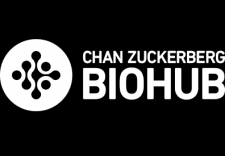Social science: Include social equity in California Biohub
By Science FARE (Feminist Anti-Racist Equity) Collective: Jessica Cussins, Kate Weatherford Darling, Ugo Edu, Laura Mamo, Jenny Reardon & Charis Thompson,
Nature
| 10. 19. 2016
We have an idea for philanthropists Priscilla Chan and Mark Zuckerberg, who last month announced their first major investment in basic science: US$600 million for a Biohub in San Francisco, California.
They aspire to 'advance human potential and promote equality' (https://chanzuckerberg.com). As members of the Science FARE (Feminist Anti-Racist Equity) collective, we suggest that 5–7% of the Biohub's health-research budget should be used to design and monitor goals of justice and equality from the outset. Otherwise, social inequalities could limit the project's potential.
Innovative social scientists will need to work with bench scientists, engineers and clinical researchers. Health research should include trained people from all social backgrounds and a variety of disciplines.
The affordability of treatments and access to them is crucial, irrespective of class, gender, race or disabilities. Building equality into Biohub's founding architecture will allow it to be tackled simultaneously with disease eradication, mitigating the uneven social distribution of health care in San Francisco's Bay Area and beyond.
Image via C-Z BioHub
Related Articles
By Rachel Hall, The Guardian | 11.20.2025
Couples are needlessly going through IVF because male infertility is under-researched, with the NHS too often failing to diagnose treatable causes, leading experts have said.
Poor understanding among GPs and a lack of specialists and NHS testing means male infertility...
By Grace Won, KQED [with CGS' Katie Hasson] | 12.02.2025
In the U.S., it’s illegal to edit genes in human embryos with the intention of creating a genetically engineered baby. But according to the Wall Street Journal, Bay Area startups are focused on just that. It wouldn’t be the first...
By Pam Belluck and Carl Zimmer, The New York Times | 11.19.2025
Gene-editing therapies offer great hope for treating rare diseases, but they face big hurdles: the tremendous time and resources involved in devising a treatment that might only apply to a small number of patients.
A study published on Wednesday...
Several recent Biopolitical Times posts (1, 2, 3, 4) have called attention to the alarmingly rapid commercialization of “designer baby” technologies: polygenic embryo screening (especially its use to purportedly screen for traits like intelligence), in vitro gametogenesis (lab-made eggs and sperm), and heritable genome editing (also termed embryo editing or reproductive gene editing). Those three, together with artificial wombs, have been dubbed the “Gattaca stack” by Brian Armstrong, CEO of the cryptocurrency company...




